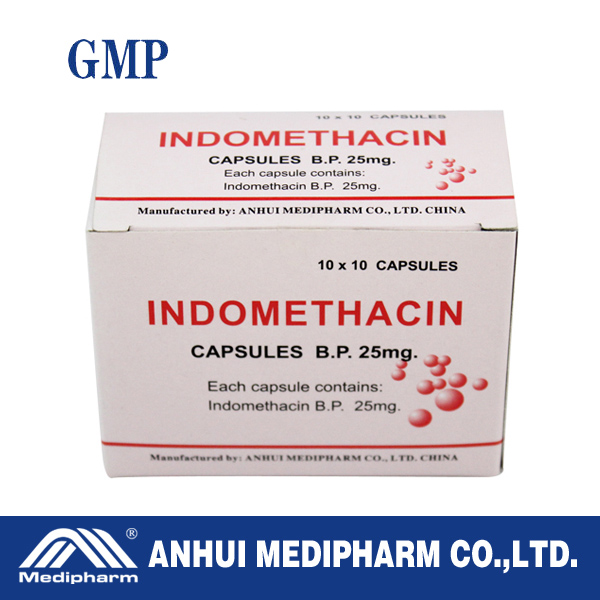| Message: | Indications:
The treatment of rheumatoid arthritis, ankylosing spondylitis, osteoarthritis, acute musculoskeletal disorders and acute gout.
Drug Interactions:
1. Probenecid. The plasma concentration of Indometacin is increased.
2. Frusemide. The natriuretic and anti-hypersensitivity effects are antagonised by Indometacin.
Precautions & Warning:
Indometacin should be used with great care in elderly patients.
Indometacin should be used with caution in patients with impaired renal function.
Indometacin inhibits platelet aggregation and prolongs bleeding time. It should be used with caution therefore in patients with bleeding disorders, and concurrent administration of anti-coagulant agent may be hazardous because of increased risk of gastrointestinal bleeding.
Peptic ulcer has been reported in a small proportion of patients. If G.I. bleeding occurs, indometacin should be discontinued immediately.
Indometacin may mask the signs and symptoms of infection.
If clinical signs of hepatic disease develop, or if liver function tests become abnormal, indometacin should be withdrawn.
Indometacin should be given with or immediately after food in order to lessen the incidence and severity of gastrointestinal side-effects.
Undesirable effects may be minimised by using the lowest effective dose for the shortest duration necessary to control symptoms (see section 4.2, and GI and cardiovascular risks below).
Use in Pregnancy and Nursing Mothers:
Indometacin is contraindicated during pregnancy and lactation.
Treatment/antidote in The Event of Overdose:
Gastric lavage should be performed if ingestion is recent. Otherwise, supportive measures and observation.
Storage instructions:
Store below 25 degrees celsius. Protect from moisture. Keep out of reach of children.
Validity: Three Years
|
 my account
my account
 log out
log out
 my account
my account
 log out
log out
